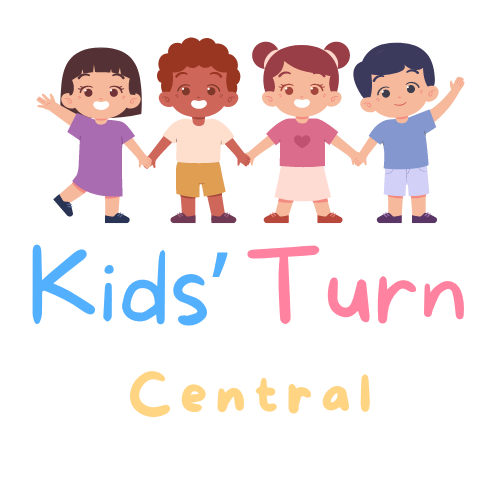As a parent, I understand the importance of early childhood education and socialization. However, traditional preschool may not be the best option for every family. Fortunately, there are numerous alternatives to preschool that can provide a unique and enriching experience for young children.

One alternative to preschool is homeschooling. As a homeschooling parent myself, I can attest to the benefits of this option. Homeschooling allows parents to tailor their child’s education to their individual needs and interests, and provides a more personalized learning experience than traditional schools can offer. It also allows for more flexibility in scheduling, which can be a major advantage for families with busy or non-traditional work schedules.
Another alternative to preschool is outdoor play-based activities. This option allows children to explore and learn in a natural environment, which can be incredibly beneficial for their development. Activities such as hiking, camping, gardening, and nature walks can provide numerous opportunities for learning and growth. Additionally, this option can be more affordable than traditional preschool programs, as many outdoor activities are low-cost or free.
Home-Based Learning

As a parent, I have found that home-based learning can be an excellent alternative to traditional preschool. It allows me to customize my child’s education and provide a more personalized learning experience than traditional schools can offer. Here are some of the ways I have found home-based learning to be effective:
Daily Routines and Activities
One of the benefits of home-based learning is the ability to create a daily routine that works for your family. I have found that having a consistent routine helps my child feel more secure and confident. We start our day with breakfast and some quiet time, followed by educational activities and playtime. We also make sure to schedule outdoor playtime and exercise to keep our bodies healthy.
Educational Toys and Games
There are many educational toys and games available that can help your child learn while having fun. I have found that toys that encourage creativity, problem-solving, and critical thinking are particularly effective. Some of our favorites include building blocks, puzzles, and board games. We also like to incorporate technology into our learning with educational apps and online games.
Parent-Led Teaching Methods
As a parent, I have found that I am the best teacher for my child. I know my child’s strengths and weaknesses and can tailor my teaching to their needs. I like to use a variety of teaching methods, including reading books, watching educational videos, and hands-on activities. I also like to incorporate real-life experiences into our learning, such as cooking, gardening, and going on nature walks.
Community Learning Groups

As a parent, I understand the importance of socialization and learning at an early age. Community learning groups are a great way to provide both for your child. Here are two examples of community learning groups that you can look into:
Playgroups
Playgroups are a fun and interactive way for your child to learn and socialize with other children. These groups typically consist of parents and their children who meet up on a regular basis to play and learn together. Playgroups can be organized by parents or through local community centers. They often include activities such as arts and crafts, music, and storytime. It’s a great way to introduce your child to new experiences and to make new friends.
Story Time at Libraries
Many local libraries offer free storytime sessions for young children. These sessions usually involve a librarian reading a story to a group of children and their parents. Storytime sessions are a great way to introduce your child to the world of literature and to help them develop their listening and comprehension skills. They also offer a chance for your child to socialize with other children and to learn how to behave in a group setting.
Online Educational Platforms

When it comes to alternatives to preschool, online educational platforms are a popular choice for parents. These platforms offer a variety of interactive learning apps and virtual preschool programs that can be accessed from the comfort of your own home.
Interactive Learning Apps
Interactive learning apps are a great way to keep your child engaged and learning. Many of these apps are designed to be fun and entertaining, while also teaching important skills such as reading, math, and problem-solving. Some popular options include ABCmouse, Reading Eggs, and Khan Academy Kids.
One of the benefits of using interactive learning apps is that they can be tailored to your child’s individual needs. Many apps offer personalized learning paths that adapt to your child’s progress and provide feedback to help them improve.
Virtual Preschool Programs
Virtual preschool programs are another option for parents looking for alternatives to traditional preschool. These programs typically offer a curriculum that is similar to what you would find in a physical preschool, but with the added convenience of being able to access it from home.
Some virtual preschool programs even offer live classes with teachers, allowing your child to interact with other students and participate in group activities. This can be especially beneficial for children who thrive in a social environment.
Outdoor Education

As a parent, I understand that preschool can be expensive and not always the best fit for every child. That’s why I’ve been exploring alternative options, and outdoor education is one that has caught my attention.
Nature Exploration
One way to incorporate outdoor education into your child’s life is through nature exploration. Take your child on a hike or nature walk, and encourage them to observe the world around them. You can point out different plants and animals, and talk about their characteristics. This is a great way to foster curiosity and a love for the natural world.
Local Parks and Playgrounds
Another option is to take advantage of your local parks and playgrounds. Many parks have nature trails and outdoor play areas that are perfect for young children. You can also look for community events that focus on outdoor education, such as nature walks or gardening workshops.
Child-Led Learning
As a parent, I understand the importance of giving my child the best possible education. When it comes to alternatives to preschool, child-led learning is a popular approach that has gained a lot of attention in recent years.
Montessori Methods
One popular method of child-led learning is the Montessori approach. This method emphasizes hands-on learning and encourages children to learn at their own pace. Montessori classrooms are designed to be child-friendly, with low shelves and tables that are easy for children to reach.
In a Montessori classroom, children are given a lot of freedom to explore and learn on their own. They are encouraged to choose their own activities and work at their own pace. This approach helps children develop a love of learning and a sense of independence that will serve them well throughout their lives.
Unschooling Approach
Another popular approach to child-led learning is unschooling. This approach is based on the idea that children are natural learners and that they will learn best when they are given the freedom to explore their own interests.
In an unschooling environment, children are not given a formal curriculum or set of assignments. Instead, they are encouraged to follow their own interests and passions. This approach allows children to learn at their own pace and to develop a deep understanding of the topics that interest them most.
Caregiver and Family Involvement
As an alternative to preschool, caregiver and family involvement can be an effective way to support a child’s learning and development. Siblings can play a valuable role in teaching younger children, promoting social skills, and building relationships within the family. Parents and extended family members can also contribute to a child’s education by providing a supportive environment for learning and engaging in educational activities.
Sibling Teaching
Older siblings can be excellent teachers for younger children. They can help with basic skills such as counting, reading, and writing. Siblings can also serve as role models, encouraging younger children to develop good study habits and a love of learning. Encouraging siblings to work together on projects and activities can also promote teamwork and cooperation.
Extended Family Contributions
Grandparents, aunts, uncles, and other extended family members can also play a valuable role in a child’s education. They can provide support and encouragement, help with homework, and share their own knowledge and experiences. Family members can also introduce children to new ideas and experiences, such as cultural traditions or hobbies. Involving extended family members in a child’s education can also strengthen family bonds and promote a sense of belonging.
Educational Television and Media
As a parent, I understand the importance of finding ways to supplement my child’s education outside of traditional school settings. One way I’ve found to do this is through educational television and media.
Documentaries for Kids
Documentaries can be a great way to introduce your child to new topics and concepts. They can be especially helpful for visual learners who may struggle with traditional textbooks. Some great options for kids include “Planet Earth” and “Blue Planet” which explore the natural world, and “The Magic School Bus” which covers a variety of science topics in a fun and engaging way.
Educational TV Shows
There are many educational TV shows that can help your child learn new things while also being entertained. Some of my favorites include “Sesame Street” which covers a wide range of topics from letters and numbers to social skills, and “Dora the Explorer” which teaches basic Spanish vocabulary.
It’s important to note that while educational television and media can be a helpful supplement to your child’s education, it should not replace other forms of learning such as hands-on activities and social interaction with peers. As with any form of media, it’s also important to monitor what your child is watching and make sure it aligns with your values and beliefs.

